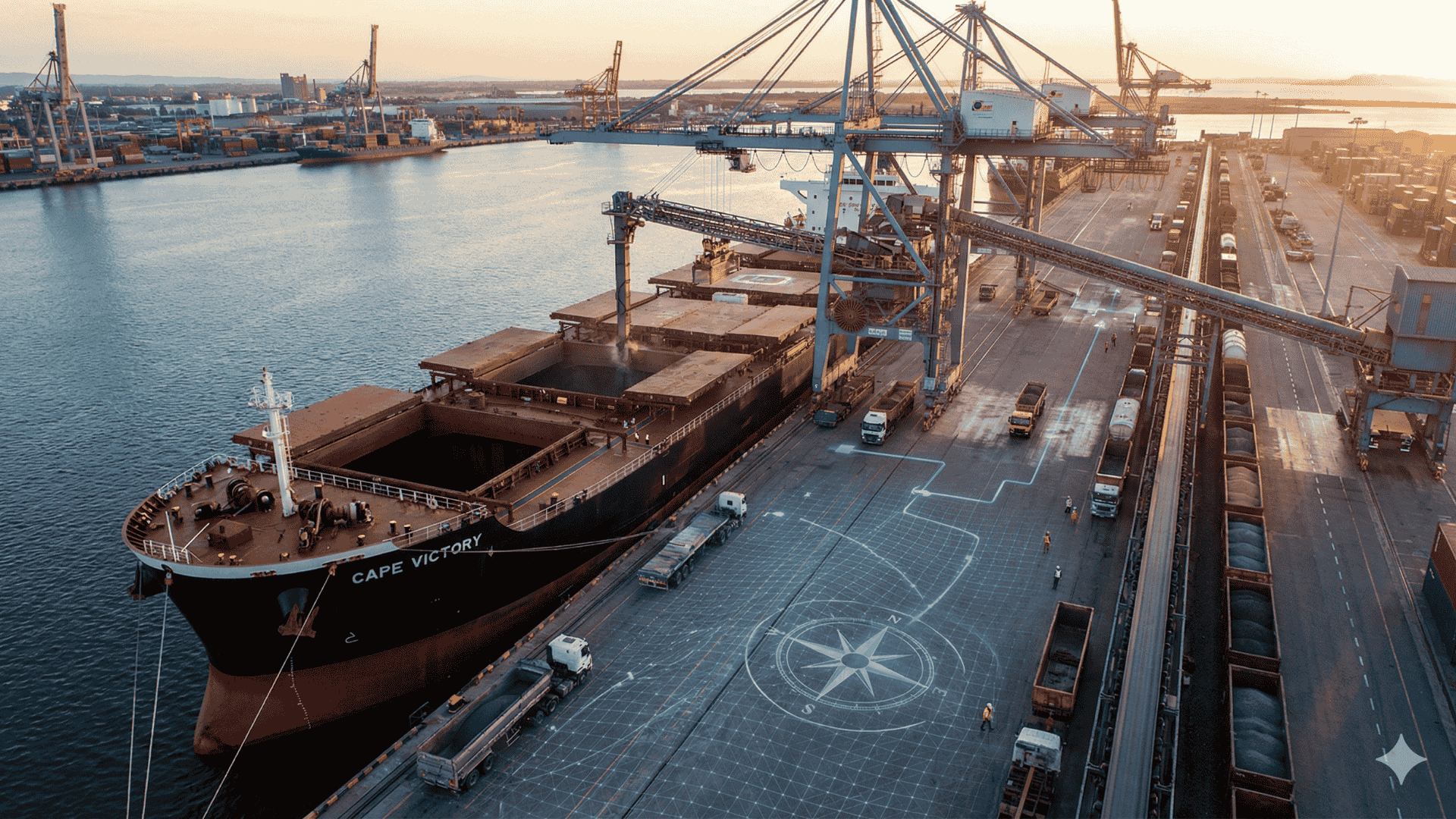In the complex ecosystem of international maritime trade, the movement of bulk commodities is rarely a linear process. For charterers and shipowners alike, the dry bulk market represents a landscape defined by extreme volatility, fluctuating freight rates, and intricate regulatory frameworks. The Problem facing many stakeholders is the assumption that fixing a vessel is merely a transactional task—a matter of connecting supply with demand. This oversimplification often leads to severe operational disruptions, unfavorable charter party terms, and significant financial exposure. Without the guidance of seasoned professionals, navigating these waters becomes a gamble rather than a strategy. This article explores why experienced dry cargo brokers are not just facilitators, but essential safeguards against market unpredictability.
The hidden costs of transactional fixing in a volatile market
Reducing ship chartering to a mere administrative transaction is a perilous strategy that often yields deceptive simplicity. When you treat the fixing process as a commodity exchange, you strip away the protective layers of market intelligence and legal scrutiny. This transactional approach leaves your business exposed to the raw volatility of the maritime sector.
The most immediate danger lies within the Charter Party itself. Without the watchful eye of specialized dry cargo brokers, subtle ambiguities in the contract terms can become expensive liabilities. A single overlooked clause regarding liability for hull cleaning or bunker consumption can shift disproportionate risk onto your balance sheet.
Financial exposure is frequently compounded by the mishandling of operational terms. Misinterpreting laytime provisions or failing to accurately calculate time allowed can result in crippling demurrage bills. These unexpected costs act as a silent tax on your efficiency, often exceeding the projected profit margin of the entire voyage before the cargo even arrives at the discharge port.
Furthermore, a lack of strategic foresight blinds you to market momentum. Inexperienced fixing often results in locking in rates at market peaks or failing to secure tonnage before a sudden spike in demand. Without expert guidance, you are essentially reacting to the market rather than navigating it.
The consequences extend beyond immediate financial loss. Poorly executed fixtures frequently escalate into prolonged legal disputes and arbitration. Ultimately, the hidden cost of cutting corners on professional brokering is the transformation of a profitable trade into a logistical and financial burden.
Beyond the fixture: operational risks and legal pitfalls
The ink on the charter party is barely dry when the real challenge begins. Many companies make the critical mistake of assuming the “fixture”—the agreement itself—is the finish line. In reality, it is merely the starting gun for a marathon of logistical hurdles. A signed contract does not guarantee a smooth voyage, and assuming otherwise is a recipe for operational disaster.
Once the vessel is underway, the theoretical terms of the contract collide with the messy reality of maritime logistics. Unexpected port congestion can instantly turn a profitable voyage into a financial black hole through spiraling demurrage costs. Furthermore, cargo damage claims arising from improper stowage or adverse weather can lead to lengthy, acrimonious legal disputes that drain your treasury and damage relationships.
The risks are not solely physical; they are increasingly regulatory. With the ever-evolving strictness of IMO regulations regarding emissions and ballast water management, compliance is a minefield. Navigating these legal frameworks without specialized knowledge exposes shipowners and charterers to vessel detention risks and heavy fines.
Attempting to manage this volatility internally often strains resources to the breaking point. Instead of focusing on core business growth, your team is forced to spend hours mitigating disputes and deciphering maritime law. This is where the absence of competent dry cargo brokers is felt most acutely. The true cost of poor operational oversight is measured not just in lost revenue, but in the severe erosion of commercial reputation.
The strategic advantage of market intelligence and network depth
To counteract the operational hazards and financial exposure inherent in the bulk sector, stakeholders must shift their perspective from simple transaction execution to strategic planning. The solution to market volatility lies in leveraging high-level expertise.
Experienced dry cargo brokers serve as the critical pivot point between uncertainty and security. Their value proposition extends far beyond merely matching a cargo to a ship; it is rooted in the ability to interpret the market before making a move.
The primary asset of a top-tier brokerage is real-time market intelligence combined with deep historical data. While an outsider might only see current freight rates, a seasoned broker analyzes the macroeconomic indicators, geopolitical shifts, and seasonal patterns that drive those rates. This analytical approach transforms decision-making from a gamble into a calculated strategy.
By interpreting these complex data signals, brokers provide the foresight necessary to optimize timing. Knowing when to enter the market is often just as critical as the rate itself. This guidance allows charterers and owners to lock in contracts during favorable windows, shielding them from sudden spikes in volatility.
Furthermore, the solution is amplified by “network depth.” The most advantageous deals are rarely found on public lists or open spot markets. They exist within the trusted relationships and off-market tonnage that only established firms possess.
Accessing this “invisible market” gives stakeholders a distinct competitive edge. It ensures that even when tonnage seems scarce or specific routes are congested, you have access to options that others simply cannot see, guaranteeing business continuity and superior commercial terms.
Case study: the value of independence and legacy expertise
The maritime industry often defaults to the largest players, assuming size equates to safety. However, a distinct friction emerges when dealing with massive conglomerates: the risk of diluted focus and conflicting interests. When a brokerage house prioritizes internal volume targets or represents conflicting parties within the same network, the advice provided is rarely truly neutral. This structural bias creates a vulnerability where the client’s best interest is secondary to corporate KPIs.
True security comes from uncompromised independence.
This is where the operational model exemplified by Rallo Shipping serves as a critical case study. With a trajectory spanning over 40 years, the firm illustrates the strategic necessity of unbiased counsel. Unlike broad-spectrum aggregators, independent dry cargo brokers operate free from the cross-departmental conflicts of larger entities. Their sole objective is securing the most favorable terms for the specific client at hand, ensuring that every fixture is driven by market reality rather than internal agendas.
Furthermore, longevity in this sector serves as the ultimate litmus test for reliability. A history spanning four decades implies more than just survival; it demonstrates profound resilience. Having navigated through multiple shipping cycles, economic downturns, and geopolitical shifts, legacy firms provide a calm, experienced hand during turbulent times.
Experienced brokers do not react impulsively to rate fluctuations because they have managed similar volatilities before. Choosing partners with this depth of heritage ensures that strategic decisions are based on historical context and foresight, not panic. In an environment defined by chaos, the stability of a veteran, independent broker transforms market volatility from a threat into a manageable variable.
Post-fixture support: where the real value is delivered
Securing the fixture is often perceived as the finish line, yet for the operational team, it is merely the starting gun. A signed Recap details the agreement, but the voyage itself is exposed to the dynamic realities of the sea—port congestion, weather delays, and technical breakdowns. The misconception that a broker’s utility ends upon signature exposes charterers and owners to avoidable commercial bleeding.
Without vigilant oversight during the voyage, even the most lucrative freight rates can be decimated by unmitigated demurrage costs or mishandled claims.
This is the precise moment where the technical expertise of seasoned dry cargo brokers transforms from a matchmaking service into a critical operational asset. True value is delivered through execution. A professional broker steps in to interpret the fine print of the Charter Party against real-world events, ensuring that Notices of Readiness are tendered correctly and that time counting is strictly monitored.
A premium brokerage service functions not as an outsider, but as a seamless extension of the principal’s operations department.
Instead of reacting to problems after they have escalated into legal disputes, a skilled intermediary provides proactive issue management. This involves meticulous laytime calculations to verify the accuracy of demurrage or despatch settlements, ensuring no revenue is lost to clerical errors or aggressive counterparty claims.
Furthermore, effectively handling disputes—whether regarding bunker quality, stevedore damage, or cargo discrepancies—requires a diplomatic yet firm approach. By resolving these frictions swiftly before they require arbitration, the broker safeguards the client’s reputation and protects the financial bottom line. Ultimately, the measure of a successful voyage is not just the rate fixed, but the final hire received or freight paid without deduction.
Conclusion
The dry bulk sector requires more than just participation; it demands mastery. As market dynamics continue to shift with increasing speed, the cost of inexperience becomes unsustainable. Experienced dry cargo brokers provide the necessary buffer against this volatility, transforming potential risks into calculated strategies. By leveraging the expertise of established firms like Rallo Shipping—companies with decades of independent operation and deep market integration—stakeholders secure not just a vessel, but a partner in trade execution. In an industry where precision is paramount, expertise is the only currency that truly holds value.

